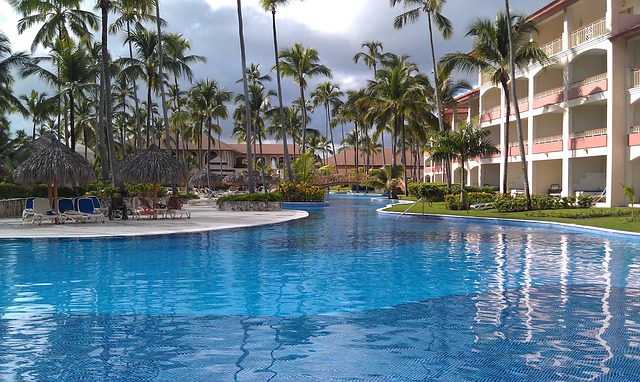The Phuket hotel licenced condominium is a distinctive property type that combines legal clarity with rental flexibility. Unlike standard condominiums or branded residences, these developments are registered with a hotel licence under Thai law. This allows owners to participate in legal short-term rentals while benefiting from professional management.
This guide explains what hotel licenced condominiums are, how ownership works for foreigners, the advantages and risks, and what buyers should look for before making a decision.
What Is a Hotel Licenced Condominium?
-
Definition: A condominium project officially registered with a hotel licence, permitting daily or weekly rentals.
-
Purpose: To provide lawful access to Phuket’s thriving short-stay tourism market.
-
Structure: Units are individually owned (Thai or foreign buyers) but operated as part of a unified hotel system, typically with centralised booking and guest services.
Legal Ownership for Foreign Buyers
-
Freehold Quota: Up to 49% of a hotel licenced condominium project can be owned freehold by foreigners, with the remainder available to Thai buyers or via leasehold.
-
Chanote Title & Registration: Ownership is registered at the Phuket Land Office, supported by a Chanote title deed, the most secure form of land title in Thailand.
-
Due Diligence: Buyers should verify the hotel licence is active and legally recognised. Marketing materials alone are not sufficient evidence. According to the Thai Land Department, hotel licencing and condominium ownership regulations must be officially registered to be valid.
They Operate Like Regular Condominiums
Even though they hold a hotel license, hotel licenced condominiums still operate under the Condominium Act. That means:
-
Owners contribute to a Sinking Fund (one-time payment into the long-term maintenance reserve).
-
Owners pay regular Common Area Maintenance (CAM) fees, which cover shared expenses like cleaning, security, utilities, and facilities upkeep.
-
The project also has a Condominium Juristic Person (CJP) that manages building compliance and common facilities on behalf of all owners.
Rental Program Models
Hotel licenced condominiums often offer structured rental programs:
-
Guaranteed Returns: Some projects offer fixed annual returns for a set number of years.
-
Shared Revenue Pools: Others distribute rental income among participating owners based on actual occupancy.
-
Neutral Note: Returns can vary depending on seasonality, occupancy rates, and operator quality – no outcome is guaranteed.
Hotel Chains and Professional Management
Another angle worth highlighting is that many condotels in Phuket are now managed by well-known international hotel brands, which helps reassure buyers about standards and marketability. Examples in Phuket include: Wyndham, Radisson, Ramada, Accor and more.
This gives credibility: buyers know their unit is operated under a recognised hospitality brand with global marketing reach.
Advantages of Hotel Licenced Condominiums
-
Legal Short-Term Rentals: Unlike standard condos, hotel licenced developments can operate as hotels.
-
Professional Management: Operators handle bookings, cleaning, maintenance, and guest services.
-
Passive Income Opportunities: Structured rental programs allow owners to earn income without active involvement.
-
Personal Use Benefits: Owners often have a set number of days per year to use their unit personally.
-
Prime Phuket Locations: Most are built in tourist-friendly areas such as Rawai, Bang Tao, Kamala, Kata and Patong.
Considerations and Risks
-
Personal Use Limits: Usage is often capped by the rental program terms.
-
Variable Income: Guaranteed returns are contractual; shared pools depend on seasonal demand.
-
Developer & Operator Reliability: The project’s long-term success depends on professional, reputable management.
-
Quota Limitations: Foreign freehold units may be limited and sell quickly.
Due Diligence Checklist
Before purchasing a Phuket hotel licenced condominium, check:
-
That the hotel licence is active and applies to the entire building.
-
Whether the unit falls within the foreign freehold quota.
-
The structure of the rental program (guaranteed vs shared pool).
-
Personal usage rights and restrictions.
-
The track record of both the developer and the management company.
Hotel Licenced Condominiums vs Branded Residences
-
Hotel Licenced Condominium: Holds a hotel licence, focused on legal short-term rentals.
-
Branded Residence: Often linked to an international hotel brand, offering luxury services but not always holding a hotel licence.
-
Key Difference: Only hotel licenced condominiums can lawfully operate daily rentals.
Summary: Phuket Hotel Licenced Condominium
The main Phuket hotel licenced condominium points include:
-
Foreigners can own units freehold within the 49% quota.
-
Units are backed by Chanote title deeds registered at the Land Office.
-
Hotel licence enables legal daily and weekly rentals.
-
Rental models include guaranteed returns and shared revenue pools.
-
Personal usage is possible but limited.
-
Risks include income variability and dependence on project quality.
Related Guides
Conclusion
Phuket hotel licenced condominiums offer foreign buyers a legal, clearly structured route into the short-term rental market. They combine the security of freehold ownership (within the quota) with the flexibility of hotel operations. As with any investment, careful due diligence is essential to confirm the license, ownership status, and rental program terms.
Disclaimer: The information contained in this article is provided for general informational purposes only and does not constitute legal, financial, or investment advice. While every effort has been made to ensure accuracy at the time of publication, property laws and regulations in Thailand are subject to change. Readers should always seek independent legal advice from a qualified Thai lawyer before making any property-related decision or transaction.


Social Contact